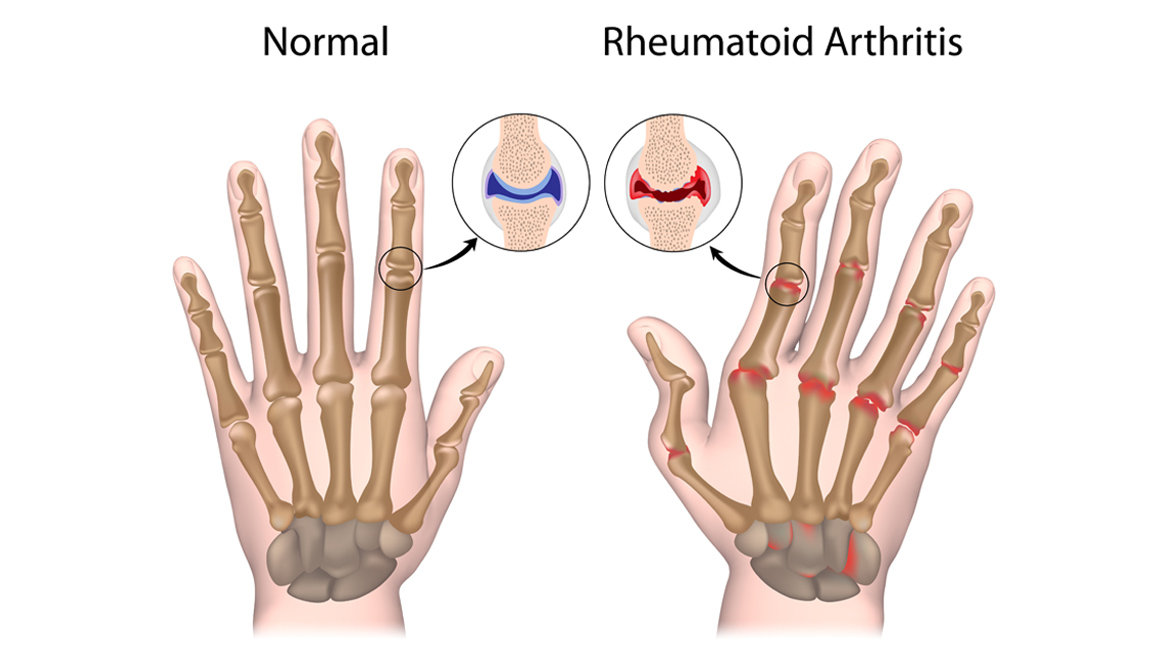
Rheumatoid Arthritis
Rheumatoid arthritis is an autoimmune disease causing joint inflammation. The disease can start at any age, but most often begins between the ages of 30 and 50. Rheumatoid arthritis happens when your immune does not work properly and attacks the lining of the joints called the synovium. It commonly affects joints in the hands, wrist, knees, and usually the same joint on both sides of the body. Rheumatoid arthritis also involve other parts of the body such as the eyes, heart and circulatory system and lungs.
Symptoms
Symptoms of rheumatoid arthritis may include:
- Joint pain, tenderness, swelling or stiffness that lasts for six weeks or longer
- Morning stiffness that lasts for 30 minutes or longer
- More than one joint is affected
- Wrists, knuckles and feet are typically affected first
- The same joints on both sides of the body are typically affected
Causes
Rheumatoid arthritis is the result of an autoimmune response in which the body’s immune system attacks its own healthy cells. The cause of rheumatoid arthritis is unknown. Genetic and environmental factors have been found to play a role. Some factors increase the risk of developing rheumatoid arthritis such as:
- Rheumatoid arthritis can begin at any age, but the likelihood increases with age
- New cases of rheumatoid arthritis are typically two-to-three times higher in women than men
- People born with specific genes are more likely to develop rheumatoid arthritis
- Multiple studies show that cigarette smoking increases a person’s risk of developing rheumatoid arthritis and can make the disease worse
- Being obese can increase the risk of developing rheumatoid arthritis
Treatment
Treatment is targeted to control inflammation, prevent permanent joint damage and loss of function. Medications used to treat rheumatoid arthritis called disease modifying anti-rheumatic drugs (DMARDs), reduce your joint pain, swelling and stiffness enabling you to perform your day-to-day activities. It is important to start treatment as soon as possible to help prevent your joints from having lasting or possibly permanent damage. Your Rheumatologist will implement the following strategies to help manage your rheumatoid arthritis:
- Early, aggressive treatment – to reduce or stop inflammation as quickly as possible
- Aiming to achieve remission with DMARDs – work toward little or no signs or symptoms of active inflammation
- Tight control – keep inflammation at the lowest level possible once low disease activity or remission is achieved
Opening Hours
Monday – Thursday: 7:30AM to 4:30PM
Friday: 7:30AM to 3:30PM
Saturday – Sunday: Closed

